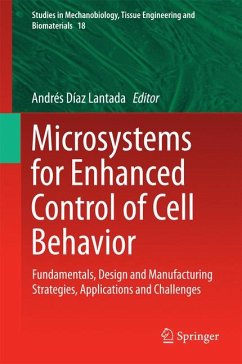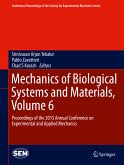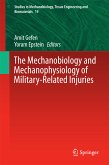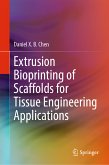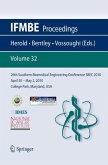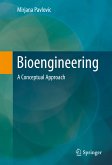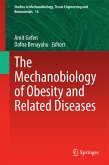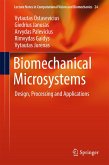This handbook focuses on the entire development process of biomedical microsystems that promote special interactions with cells. Fundamentals of cell biology and mechanobiology are described as necessary preparatory input for design tasks. Advanced design, simulation, and micro/nanomanufacturing resources, whose combined use enables the development of biomedical microsystems capable of interacting at a cellular level, are covered in depth. A detailed series of chapters is then devoted to applications based on microsystems that offer enhanced cellular control, including microfluidic devices for diagnosis and therapy, cell-based sensors and actuators (smart biodevices), microstructured prostheses for improvement of biocompatibility, microstructured and microtextured cell culture matrices for promotion of cell growth and differentiation, electrophoretic microsystems for study of cell mechanics, microstructured and microtextured biodevices for study of cell adhesion and dynamics, and biomimetic microsystems (including organs-on-chips), among others. Challenges relating to the development of reliable in vitro biomimetic microsystems, the design and manufacture of complex geometries, and biofabrication are also discussed.
Dieser Download kann aus rechtlichen Gründen nur mit Rechnungsadresse in A, B, BG, CY, CZ, D, DK, EW, E, FIN, F, GR, HR, H, IRL, I, LT, L, LR, M, NL, PL, P, R, S, SLO, SK ausgeliefert werden.

